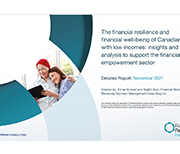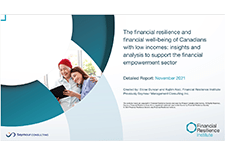15 percent of Canadians are ‘underbanked’ — here’s what that means and why it’s a barrier to equitable recovery
Research shows that 15 percent, or close to five million Canadians, are underbanked, and three percent are completely unbanked, meaning that they have very limited or no access to financial services within the traditional banking sector. Ironically, underbanked individuals often come from low-moderate income backgrounds which put them at a higher need for accessible financial services. However, factors like low credit scores, high credit card fees, and non-sufficient fund fees are major barriers that shut Canadians out from banks. Instances of explicit racism while banking, which include being handcuffed when trying to open a bank account, have further diminished the trust in banks for many Black, Indigenous and people of colour.






